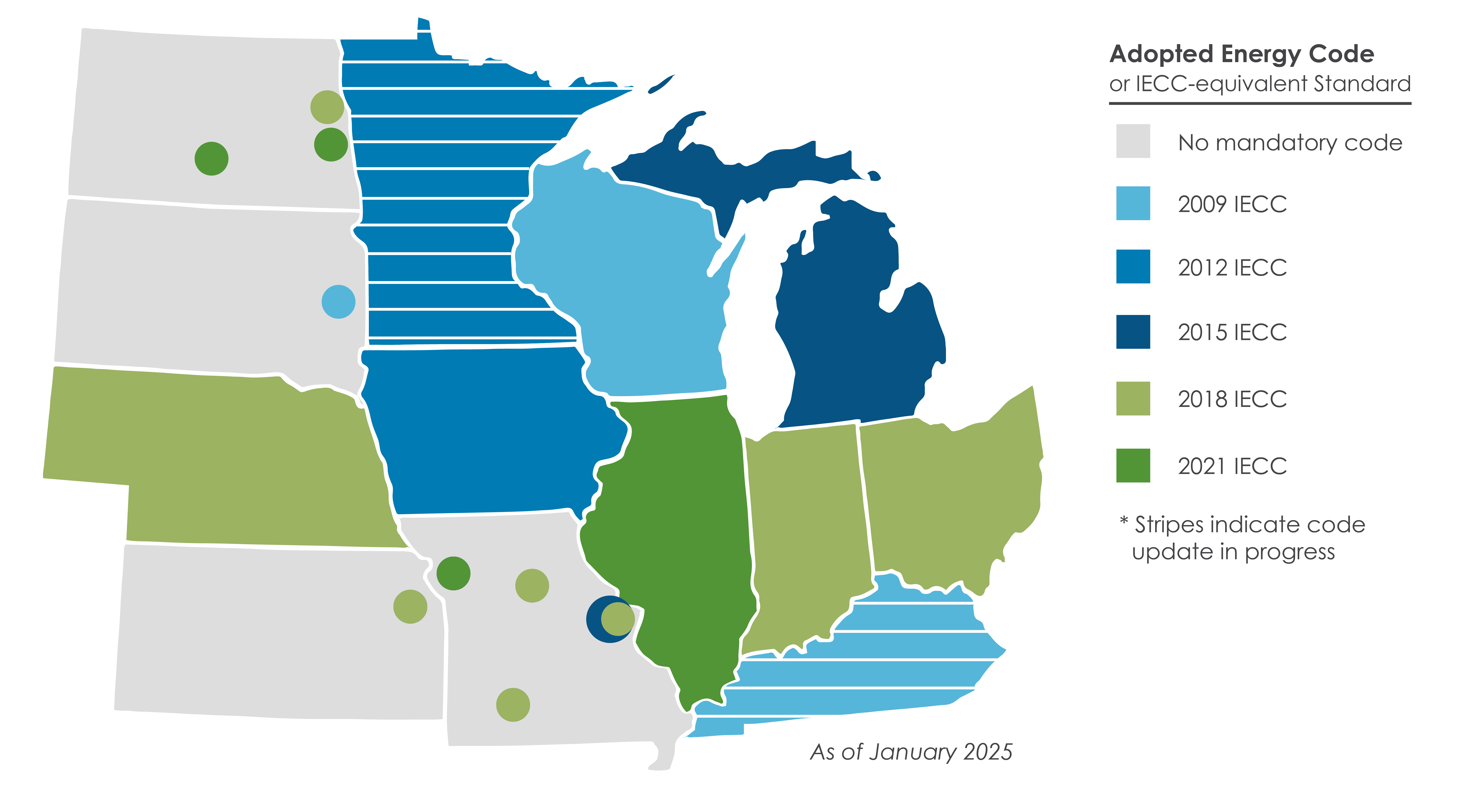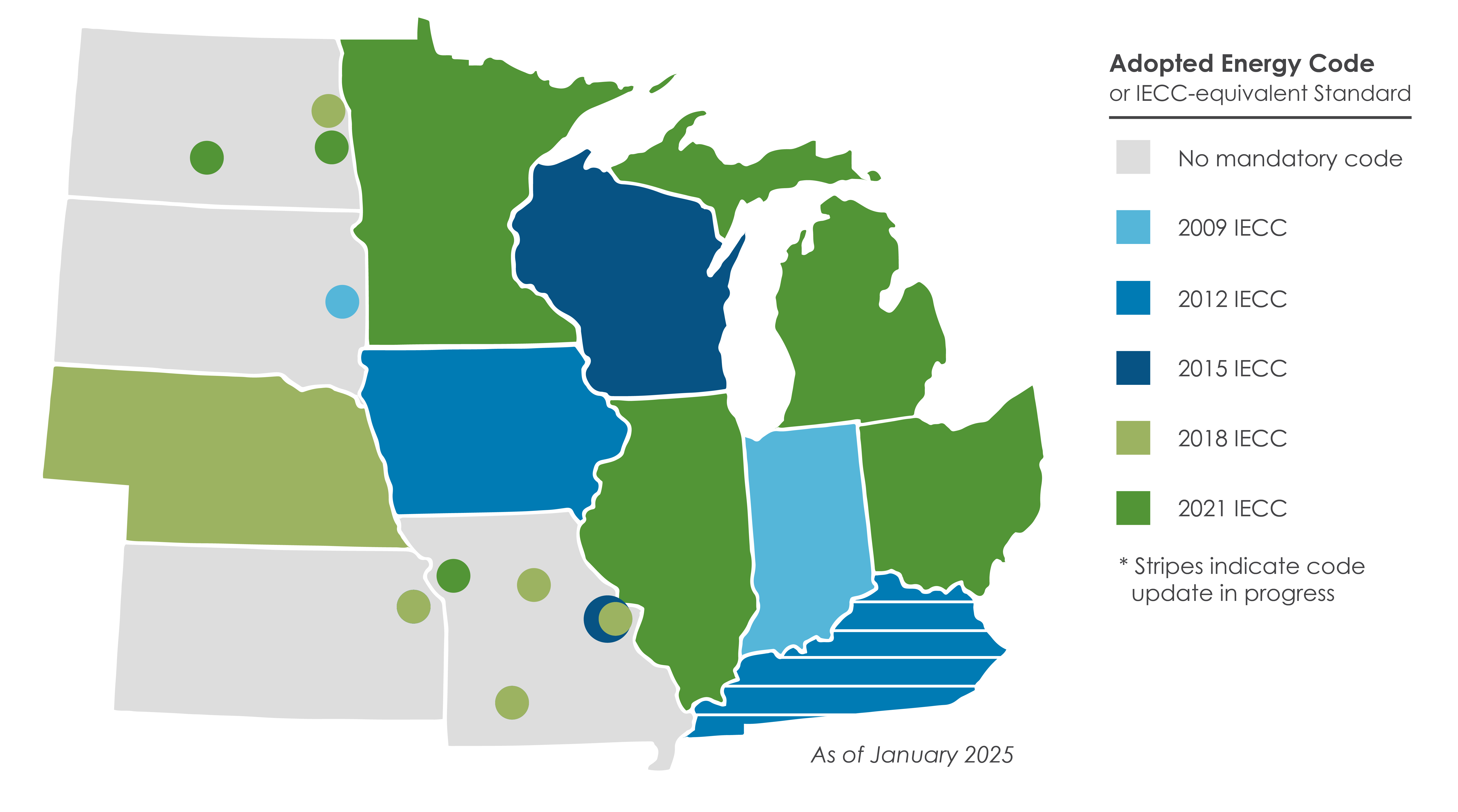Building energy codes contain minimum energy efficiency provisions for residential and commercial buildings. The codes are recognized as a simple and cost-effective way to reduce energy consumption and lower energy bills. Buildings consume 40% of the world's raw materials and energy. Today’s new construction buildings are estimated to have a lifetime of 75 years. It is cheaper and easier to build in energy-saving components at the time of construction, meaning that energy savings opportunities are lost over the lifetime the building if they are not added in during initial construction. State code policies can be found on respective state policy pages.
Building Energy Codes in the Midwest
Residential Building Energy Code Adoption

Commercial Building Energy Code Adoption

Promoting Building Energy Codes in the Midwest
MEEA partners with state and local energy code officials, building professionals, utilities and other code experts to increase accessibility to the latest code-related information and technologies, keep stakeholders up to date on the latest activities across the Midwest and coordinate code-related activity from regional to federal level.
By providing technical policy information and analysis on the potential energy savings of energy codes; consumer benefits, including cost savings; the cost of proposed revisions and cost effectiveness and the market availability of new technologies and techniques, MEEA facilitates a discussion around measuring compliance with building energy codes.
MEEA works to improve and increase access to training on energy codes through partnerships with state agencies, institutions and organizations. MEEA leads facilitation and management of code compliance collaboratives by bringing stakeholders together to propose and implement solutions to issues that block the adequate implementation and enforcement of energy codes.
Annual Codes Conference
The Midwest Building Energy Codes Conference brings together stakeholders from across the Midwest to discuss how best to promote the adoption, implementation and enforcement of building energy codes across the region. The conference provides an opportunity for stakeholders from various disciplines to meet, network and discuss the various approaches and strategies needed for improved energy codes adoption and compliance.
Additional Codes Resources
Because energy codes are a nationally-important issue, a number of national organizations track building energy code information across the country. Additional building energy code resources are available at:
The U.S. Department of Energy, Building Energy Codes Program
The U.S. Department of Energy (DOE), through the Building Energy Codes Program (BECP), supports energy efficiency in buildings through the development and implementation of model codes and standards. U.S. DOE also provides technical assistance to states and localities as they adopt and enforce energy codes.